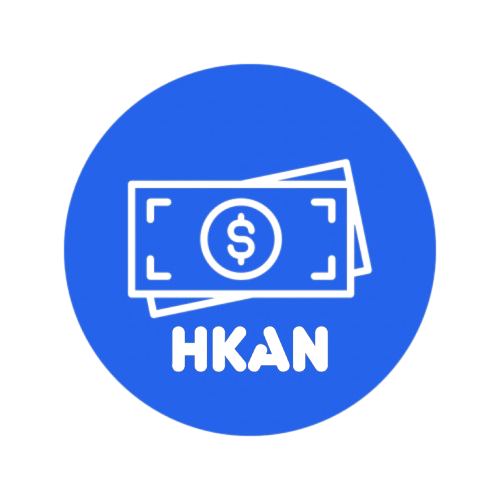The Ultimate Guide: Ethereum, Binance Smart Chain, Polygon, and Tron A Deep Dive into Crypto Trading Networks
HKAN | Aug 2025
Cryptocurrency has transformed how people trade, invest, and transfer money across the globe. Imagine a financial system without banks or middlemen, where your funds move instantly through decentralized digital highways. These highways are blockchain networks. If you’re into crypto trading, understanding these networks is critical to making smart, cost-effective, and secure choices.
Four of the most important networks for traders today are Ethereum (ETH), Binance Smart Chain (BSC), Polygon (MATIC), and Tron (TRX). Each has its strengths, weaknesses, and unique value for traders. In this guide, we will explore their features, fees, speed, decentralization, and ecosystems—helping you decide which blockchain suits your trading strategy.
1. Ethereum (ETH) – The Pioneer and King of Smart Contracts
Ethereum is the original smart contract platform, setting the stage for decentralized finance (DeFi), NFTs, and dApps. Since its upgrade to Proof-of-Stake (PoS) after The Merge, Ethereum has become more energy-efficient while maintaining its status as the most secure and decentralized blockchain.
Key Features
-
Smart Contracts & dApps – Ethereum enabled the rise of DeFi platforms, DAOs, and NFT marketplaces.
-
Gas Fees & Scalability Issues – Ethereum transactions require "gas," which can become expensive during network congestion. Layer 2 solutions like Arbitrum, Optimism, and zkSync help lower fees.
-
Security & Decentralization – With thousands of validators worldwide, Ethereum remains the most secure and decentralized network.
👉 Ethereum is best for users who want cutting-edge dApps, NFT marketplaces, and strong security, even if that means paying higher fees.
2. Binance Smart Chain (BSC) – The Fast and Cost-Effective Alternative
Launched by Binance, BSC (now part of BNB Chain) is a low-cost, high-speed blockchain. It runs on a Proof-of-Staked Authority (PoSA) consensus mechanism, offering much faster and cheaper transactions than Ethereum.
Key Features
-
EVM Compatibility – Developers can easily migrate Ethereum projects to BSC, and users can connect with wallets like MetaMask.
-
Low Fees & High Speed – Transactions cost just a few cents and confirm in seconds.
-
Ecosystem Growth vs. Centralization – BSC has a booming DeFi ecosystem but faces criticism for centralization, as Binance controls much of its infrastructure.
👉 BSC is ideal for traders seeking low fees, speed, and familiar tools like MetaMask, with the trade-off of reduced decentralization.
3. Polygon (MATIC) – Ethereum’s Scalability Layer
Polygon is a Layer 2 scaling solution for Ethereum. Instead of competing directly, Polygon improves Ethereum by making it faster and cheaper through its Proof-of-Stake sidechain.
Key Features
-
Scalable Transactions – Polygon batches transactions off-chain and sends them back to Ethereum for security.
-
Ultra-Low Fees – Transactions cost fractions of a cent, making Polygon attractive for active DeFi and NFT users.
-
Interoperability & Adoption – Many dApps run on Polygon, and major companies (like Starbucks and Reddit) use Polygon for NFTs.
👉 Polygon is perfect for traders who want Ethereum’s ecosystem without paying high gas fees, making it beginner-friendly and cost-efficient.
4. Tron (TRX) – The High-Throughput Content Network
Tron was designed to power a decentralized internet, with a strong focus on digital content and entertainment. Using Delegated Proof-of-Stake (DPoS), Tron achieves incredible speed and low transaction costs.
Key Features
-
High Speed & Low Costs – Tron processes thousands of transactions per second, often for free or near-zero fees.
-
TRC-20 Token Standard – Widely used for stablecoins like USDT (Tether), making Tron popular for fast, cheap transfers.
-
DPoS Governance – Transactions are validated by Super Representatives elected by token holders. This boosts efficiency but raises decentralization concerns.
👉 Tron is best for users prioritizing speed and micro-transactions, especially for stablecoin transfers and entertainment platforms.
5. Comparing Ethereum, BSC, Polygon, and Tron
Here’s a side-by-side comparison of the four networks:
| Feature | Ethereum (ETH) | Binance Smart Chain (BSC) | Polygon (MATIC) | Tron (TRX) |
|---|---|---|---|---|
| Fees | High (can exceed $10+) | Very low (a few cents) | Very low (<$0.01) | Almost free |
| Speed | Slower (minutes during congestion) | Fast (seconds) | Fast (seconds) | Extremely fast (near-instant) |
| Ecosystem | Largest (DeFi, NFTs, DAOs) | Growing (DeFi heavy) | Expanding (NFTs, DeFi, corporate adoption) | Focused on stablecoins & entertainment |
| Security | Highly decentralized | Semi-centralized | Secured by Ethereum + PoS | DPoS with limited validators |
| Best For | Security, innovation, high-value trades | Low-cost DeFi, fast trading | Scalable Ethereum experience | Cheap, high-speed transfers |
6. How to Choose the Right Crypto Network for Trading
When deciding which blockchain to use, ask yourself:
-
Are low fees your priority?
→ Go with BSC, Polygon, or Tron. -
Do you want access to the biggest dApp and NFT ecosystem?
→ Ethereum leads the way. -
Do you need fast confirmation for frequent trades?
→ BSC and Tron excel in speed. -
Do you value decentralization and security above all?
→ Ethereum is the safest choice. -
Do you want a balance of cost and Ethereum access?
→ Polygon gives the best middle ground.
Conclusion: Which Blockchain Should You Trade On?
Choosing between Ethereum, Binance Smart Chain, Polygon, and Tron depends on your trading style and goals.
-
Ethereum: unmatched security, innovation, and ecosystem—but costly.
-
Binance Smart Chain: low fees, speed, and wide adoption—but more centralized.
-
Polygon: Ethereum’s scalable partner with ultra-cheap transactions.
-
Tron: lightning-fast, low-cost, and great for stablecoin transfers.
Every trader should explore these networks, test their strengths, and build a strategy around what matters most: cost, speed, security, or ecosystem access.
For real-time data, advanced charts, AI-driven predictions, and powerful tools covering the top 4 major crypto trading networks, visit HKAN.trade. It’s your one-stop platform for smarter, data-driven crypto trading decisions. 🚀
💬 Comments
No comments yet. Be the first!
Please log in to post a comment.
